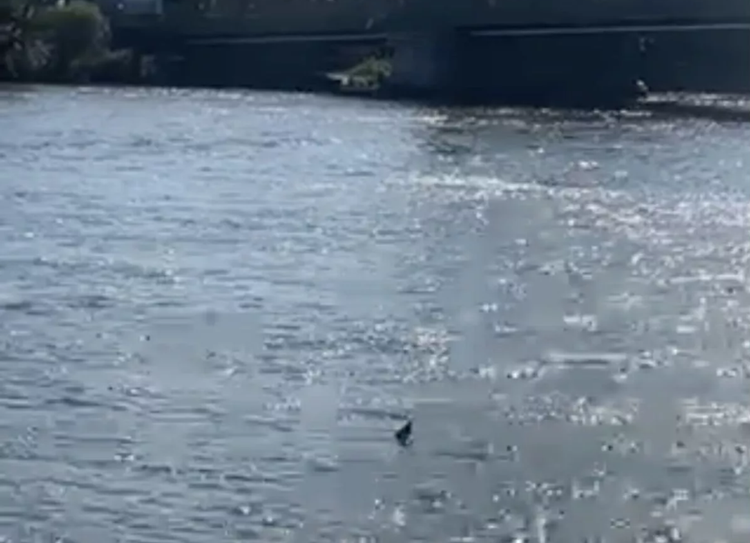Watch: the moment a shark is spotted in the River Thames

A video on TikTok with the words "Could this be the end?" caused a lot of excitement among users who thought a new scary movie was becoming real.
The movie "Under Paris" came out on Netflix recently and follows a scientist tasked with rescuing Paris from danger when it's discovered that a shark is lurking in the River Seine.
Olivia, my close friend, assured me that the creature we saw was not a shark, but playfully suggested it might be a crocodile instead. Its size, about 5 feet long, indicates that it was likely a tope shark.
"I really dislike sharks, so this just solidified my choice to avoid the ocean in the future. As we continued enjoying our sweet potato fries, we thought it would be amusing to post about it on the internet."
The fin is believed to belong to a tope shark, a species that is critically endangered and can reach lengths of up to 6 feet 3 inches. Fortunately, these sharks are considered harmless to humans. It is thought that they use the river as a breeding ground after giving birth.
People who watched the TikTok video, which got over 83,000 likes when this was written, have shared their worries.
One person said: "It's okay, the sharks can keep it. I definitely won't be going for a swim in the Thames anytime soon." Another person commented: "I believe there are more dangers in the Thames than just sharks."
Some people drew parallels between the short video and the popular movie on Netflix.
"In London, a phenomenon similar to what occurred in Paris is taking place," remarked one person, as another chimed in, "The events in Paris were truly a cautionary tale."
Ocearch, a company from Utah, has been monitoring 437 sea creatures. In 2023, they stated that Ireland and Cornwall are ideal habitats for great white sharks during the summer, as the water temperatures average around 16 degrees Celsius.
Chris Fischer, the person who started Ocearch, said to The Times, "We think that Mediterranean white sharks should travel up north to hunt seals, just like the other groups of sharks we have studied. We think they should be heading past Brest in Brittany and Cornwall."











































